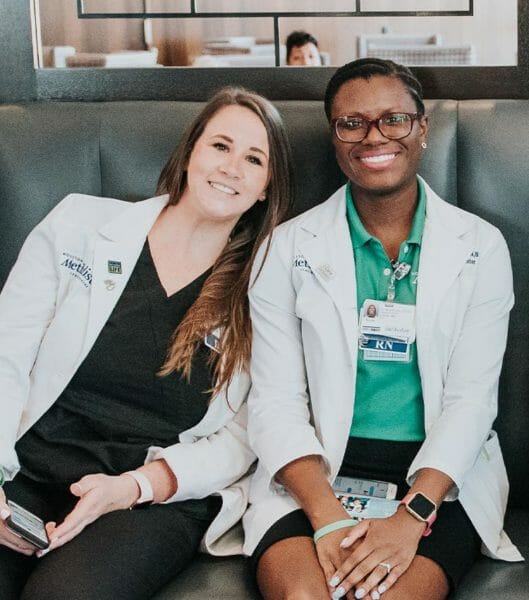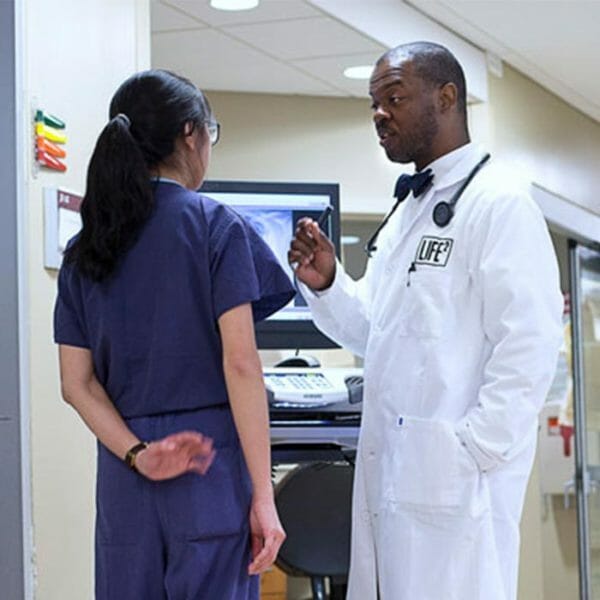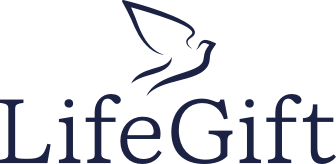Hospital partners
Nurses, physicians, administrators and other hospital staff members are vital in offering hope to the communities LifeGift serves. We partner with hospitals to continually improve government-regulated donation systems to help increase the number of donated organs and tissues available for transplant.
We also help train hospital staff members on all aspects of donation, from the appropriate identification and timing for referrals of potential donors to the medical maintenance of the donor and the recovery operation.

How does the donation process work?
The donation process is time-sensitive and complex, with various partners helping along the way to ensure every opportunity to save lives. Types of donation include organ donation, tissue donation, neonatal donation and living donation.

Our training program
LifeGift is committed to providing outstanding education and competency-based training to our team members at every stage of their career. In 2020 we launched LifeGift Institute for the Future of Transplantation (LIFT) – our premier professional development and training program that aims to raise the team’s expertise in a variety of topics and protocols.
In 2021, we expanded LIFT to include education for our partners as part of our commitment to providing training in- person or virtually. Topics spanned the entirety of the donation process, from donor referral through surgical recovery, as well as collaboration on creating a successful donation program.

Upcoming events
Power of Partnerships
Stronger Together: Donation Misconceptions
Thursday, August 7, 2025, 9:00 am – 2:30 pm
Virtual Workshop
The Power of Partnerships workshop is a collaborative educational program designed to strengthen the working relationships between hospitals and LifeGift to improve donation outcomes. This workshop brings together critical care staff, hospital leadership and donation professionals to engage in interactive discussions, case reviews and best practice sharing focused on enhancing the donation process.
The workshop emphasizes the importance of early identification and referral, effective interdisciplinary communication and adherence to regulatory and clinical standards. Participants explore real-life donor cases, examine key performance metrics and identify opportunities for system improvement and shared accountability.
By fostering a deeper understanding of each stakeholder’s role and promoting dialogue, the Power of Partnerships workshop supports the development of high-performing donation programs and empowers hospital teams to take an active role in saving and healing lives through organ and tissue donation.
Why Attend?
This workshop provides an opportunity to deepen your knowledge, strengthen interprofessional collaboration and contribute to improved donation practices at your hospital. It’s a chance to connect with peers, hear from subject matter experts and leave with actionable strategies you can apply immediately.
Continuing Education:
Participants will be eligible to earn 4.5 CEs.
For more information and to register, click here.
Donation Champion Training: Empowering Hospital Leaders in Donation Advocacy
Thursday, October 2, 2025, 8:00 am – 4:30 pm
Houston (In-person), Fort Worth (In-person) and Lubbock (In-person)
Donation Champions play a crucial role in fostering a culture of organ donation within hospitals. The Donation Champion Training equips healthcare professionals with the knowledge and skills to become advocates for organ, eye and tissue donation. This interactive session will cover best practices in donor identification, family conversations and hospital policies to increase donor potential and save lives.
Attendees will gain insights into strategies for effective hospital engagement, ethical considerations and ways to support families through the donation process. This training is ideal for nurses, physicians, social workers, chaplains and hospital leaders committed to making a difference.
For more information and to register, click here.
Organ Donation 101: Connecting Purpose to Practice
Thursday, September 4, 2025, 8:00 am – 5:00 pm
Thursday, December 18, 2025, 8:00 am – 5:00 pm
Memorial Hermann – TMC, Sarofim Conference Room, 4th Floor, Houston, TX
Every healthcare professional plays a role in the organ donation process, but understanding how to navigate it effectively is key. Organ Donation 101: Connecting Purpose to Practice provides a foundational overview of the organ donation process, including clinical protocols, ethical considerations and the impact of donation on patients and families.
Participants will gain a deeper understanding of the importance of their role in the donation continuum. Whether you are new to donation or looking for a refresher, this session will help bridge the gap between purpose and practice in saving lives.
Registration is not yet open.
Have questions? Contact your donation systems specialist
Our team of experts and specialists are here to answer your questions, arrange education and provide support.
Discover helpful resources
Explore our comprehensive library of professional resources and knowledge tools through our monthly newsletters and other resources:
The Alliance
The Organ Donation and Transplantation Alliance activates the “All Teach, All Learn” approach by exchanging collective expertise across the healthcare continuum and by developing relevant, targeted and scalable learning solutions, in the bold pursuit to save and heal lives.
DCD Training Video
Attestation Letter for Hospitals
Hospital Huddle Checklists
Sample Donation Policy
Compliance with federal, state, and regulatory agency requirements.

